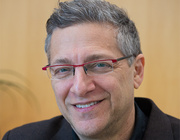On Wednesday, July 21, 1773, two graduating Harvard seniors, Theodore Parsons and Eliphalet Pearson, were summoned before a public audience to debate whether slavery was compatible with “natural law.” Such public disputations had been a fundamental part of acquiring and demonstrating knowledge for centuries, but this novel form—the forensic dispute—was new in the mid-18th century. This exchange is the only example for which a full verbatim record survives.
"No More, America," a film by Peter Galison, reimagines this original debate to include the powerful voice of Phillis Wheatley, an acclaimed poet, then-enslaved, who lived just across the Charles River from the two Harvard students. All three were 21 years old at the time of the disputation. The words are theirs, freely edited and arranged. Though her book "Poems on Various Subjects, Religious and Moral" appeared in London in 1773, Wheatley’s voice, contemporaneous with the disputation, would never have originally appeared alongside the debate. In this film, Wheatley’s presence serves as an intervention, rejecting the racist rhetoric employed by both sides through excerpts from her published works.
This film was created at the request of, and funded by, the Harvard Art Museums, in conjunction with their 2017 exhibit "The Philosophy Chamber."
Read more in this pre-publication article for Critical Inquiry, Volume 45, Issue 2 (Winter 2019).
